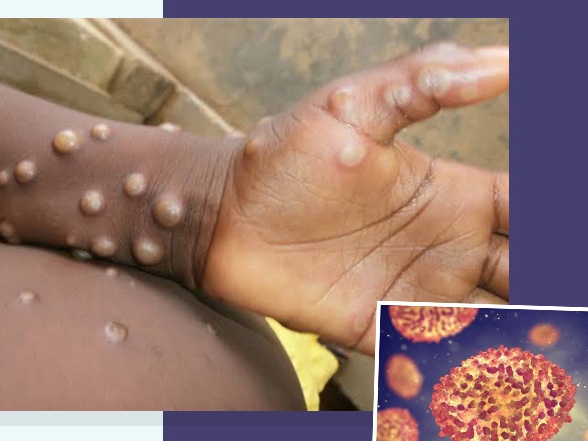The United Nations’ Aids agency (UNAIDS) on Monday denounced some reporting on the monkeypox virus as racist and homophobic, warning irresponsible language was undermining the response to the outbreak as it gathers pace across the globe.
UNAIDS said “a significant proportion” of recent monkeypox cases have been identified among “gay, bisexual and other men who have sex with men” leading to some portrayals of Africans and LGBTI people gravely “reinforce homophobic and racist stereotypes and exacerbate stigma.”
The UNAIDS deputy executive director, Matthew Kavanagh, advised such talk should cease forthwith. He said:
Stigma and blame undermine trust and capacity to respond effectively during outbreaks like this one.
Experience shows that stigmatising rhetoric can quickly disable evidence-based response by stoking cycles of fear, driving people away from health services, impeding efforts to identify cases and encouraging ineffective, punitive measures.
The agency further urged all media outlets covering Monkeypox to follow updates provided by the World Health Organization (W.H.O) while acknowledging the situation is “evolving and the surveillance expanding, it is expected that more monkeypox cases will be identified.”
Israel on Sunday said it had detected a second suspected case of monkeypox, a day after it confirmed a first patient with the rare disease. https://t.co/WGcGoOYQop
— Breitbart News (@BreitbartNews) May 22, 2022
The W.H.O. on Saturday added its voice to the growing chorus warning about the rise in infections, saying it expects more cases to emerge after a handful were detected in the U.S. and Europe.
“The situation is evolving and W.H.O. expects there will be more cases of monkeypox identified as surveillance expands in non-endemic countries,” the W.H.O. said in a statement.
Genome sequence from a swab sample from a confirmed case in Portugal indicated a close match of the monkeypox virus causing the current outbreak, to exported cases from Nigeria to the United Kingdom, Israel and Singapore in 2018 and 2019.
Biden issued a health warning Sunday, cautioning “everybody” should be concerned about the cases of monkeypox recently detected both in the U.S. and in Europe. https://t.co/6E9pH4QSGU
— Breitbart News (@BreitbartNews) May 22, 2022
The name monkeypox originates from the initial discovery of the virus in monkeys in a Danish laboratory in 1958. The first human case was identified in a child in the Democratic Republic of the Congo in 1970.
Monkeypox virus is transmitted from one person to another by close contact with lesions, body fluids, respiratory droplets and contaminated materials such as bedding. The incubation period of is usually from six to 13 days but can range from five to 21 days.

COMMENTS
Please let us know if you're having issues with commenting.